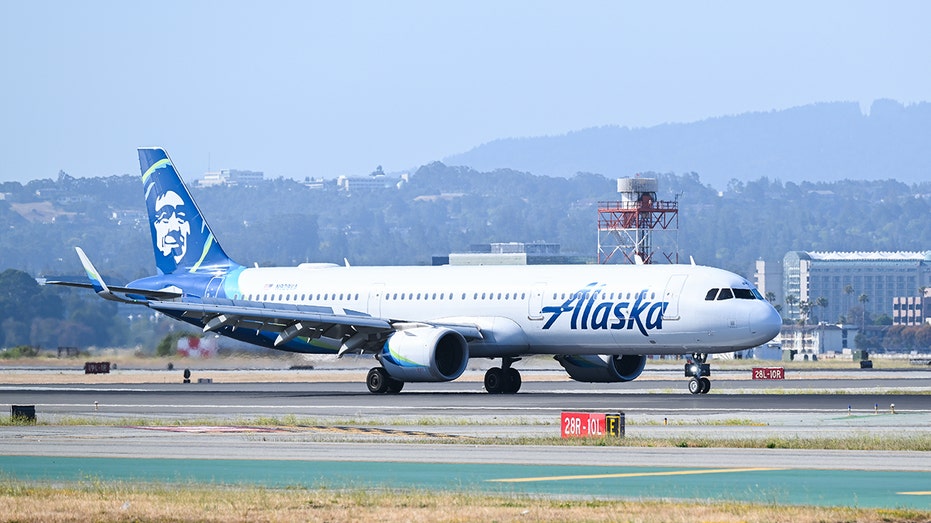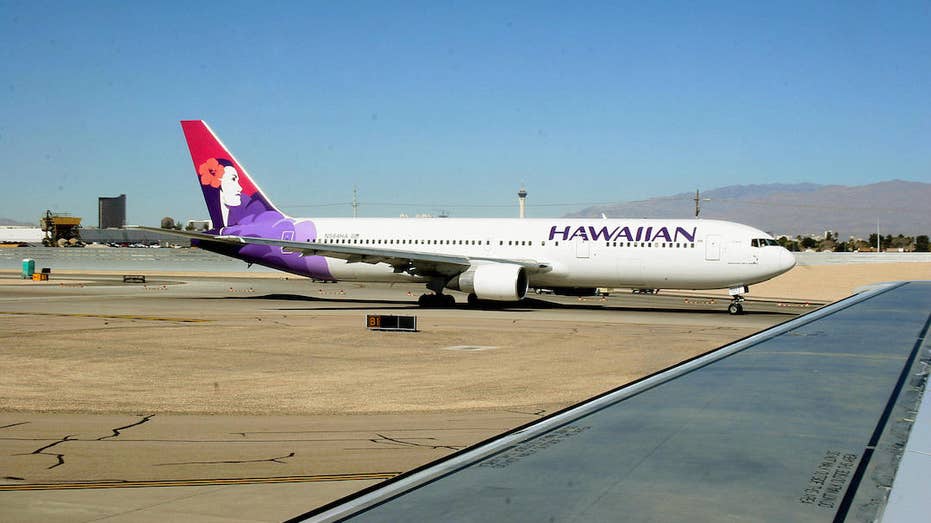Alaska, Hawaiian Airlines: What the merger means for travelers
Travel expert projects DOJ will take 'fine-toothed comb' to proposed deal
Overall travel is showing ‘no signs’ of slowing down: Misty Belles
Virtuoso Vice President of Global Public Relations Misty Belles joins ‘Mornings with Maria’ to discuss worldwide travel trends.
A merger between Alaska and Hawaiian Airlines – if approved by U.S. regulators – will result in fewer cheap flights, according to industry experts.
Alaska on Sunday announced that it was buying rival carrier Hawaiian in a deal valued at $1.9 billion. The carrier touted that the merger would "unlock more destinations for consumers and expand choice of critical air service options and access," according to the announcement.
| Ticker | Security | Last | Change | Change % |
|---|---|---|---|---|
| ALK | ALASKA AIR GROUP INC. | 60.21 | +0.76 | +1.28% |
| HA | NO DATA AVAILABLE | - | - | - |
But Going.com travel expert Katy Nastro told FOX Business that a merger between any airline, no matter how big or small, eliminates competition in the market and effects airline fares.
"Competition between airlines means they have to come to the table with something to offer consumers to sway their buying decision," Nastro said. "When it comes down to it, for a leisure consumer, price will always be the deciding factor."
ALASKA AIRLINES ACQUIRES HAWAIIAN AIRLINES IN $1.9 BILLION DEAL
It's the very reason why Jetblue's proposed buyout of Spirit Airlines is getting pushback from antitrust regulators.
While this merger, announced Sunday, would be different from JetBlue and Spirit's deal, given that the airlines control far less of the industry, the same principle applies, she said.
| Ticker | Security | Last | Change | Change % |
|---|---|---|---|---|
| JBLU | JETBLUE AIRWAYS CORP. | 6.16 | -0.20 | -3.14% |
| SAVE | NO DATA AVAILABLE | - | - | - |
"As consumers, we want competition in the marketplace even if it's just one more airline flying in and out of an airport or on a specific route," Nastro said.

An Alaska Airlines plane takes off from San Francisco International Airport on June 21, 2023. (Tayfun Coskun/Anadolu Agency via / Getty Images)
"That's leaving fewer airlines to offer options and compete with one another and that actually hurts the consumer in the end. It's not helping the consumer," Nastro said.
VIRGIN ATLANTIC CEO SAYS LEISURE TRAVEL REMAINS ROBUST, EXPECTS TO RETURN TO PROFITABILITY IN 2024
Given that there could be less competition, if the merger is approved, it means it won't pull down ticket prices.
Earlier this year, Going.com founder Scott Keyes posted on social media that a merger between these airlines, "would result not in more cheap flights for consumers, but fewer."
"Competition between airlines is the single biggest cause of cheap flights," Keyes wrote.
It's unlikely that there will be drastic price hikes. This also doesn't mean that "cheap flights are going away, but it definitely doesn't hurt that it doesn't help the cause," Nastro said.

A Hawaiian Airlines jet taxies out to the runway at Phoenix Sky Harbor International Airport in Phoenix, Arizona 14 February, 2006. (Karen Bleier/AFP via / Getty Images)
She calls the merger a double-edged sword because on the flip side of things, the deal could potentially give people on the West Coast and even the Hawaiian Islands a lot more connectivity, especially those looking to travel internationally, but it won't equally benefit everyone.
"Especially if I live in Hawaii or on the West Coast, now I can get more connectivity to potentially Asia," she said, adding that "they are definitely looking at Honolulu as being this sort of gateway for Alaska," which has been trying to build out its international profile.
However, just because a deal was announced, doesn't mean it will come to fruition. If it does, it would take at least a year to complete, she said.
Nastro expects the Department of Justice (DOJ) to "take a fine-toothed comb to this" deal, especially due to the current administration's general hard line when it comes to any type of consolidated industries like air transportation.
Earlier this year, the DOJ sued to block JetBlue's proposed merger with Spirit, alleging that the low-cost carrier has "brought lower fares and more options to routes across the country, making it possible for more Americans – particularly price sensitive consumers who pay their own fares – to travel."
The DOJ further argued that the proposed acquisition, a deal valued at $3.8 billion, "would eliminate the ‘Spirit Effect,’ where Spirit’s presence in a market forces other air carriers, including JetBlue, to lower their fares."
GET FOX BUSINESS ON THE GO BY CLICKING HERE
In eliminating half of the ultra-low cost capacity, regulators argued that it would lead to higher fares and fewer seats.
| Ticker | Security | Last | Change | Change % |
|---|---|---|---|---|
| LUV | SOUTHWEST AIRLINES CO. | 53.36 | -0.90 | -1.66% |
| DAL | DELTA AIR LINES INC. | 75.00 | -0.35 | -0.46% |
| UAL | UNITED AIRLINES HOLDINGS INC. | 116.20 | +0.29 | +0.25% |
However, last month, Spirit CEO Ted Christie defended the pending deal, saying his carrier remained "relatively insignificant" and that since 2016, it knew that it would have to combine with a rival in order to effectively compete against the heavy hitters that dominate 80% of the U.S. market, according to Reuters.
This includes American, Southwest, Delta and United Airlines.





















